MARCH 2015. Starting the thinking: refining the debate. Invitation to The Mirage of Participation and the resulting Wordle.

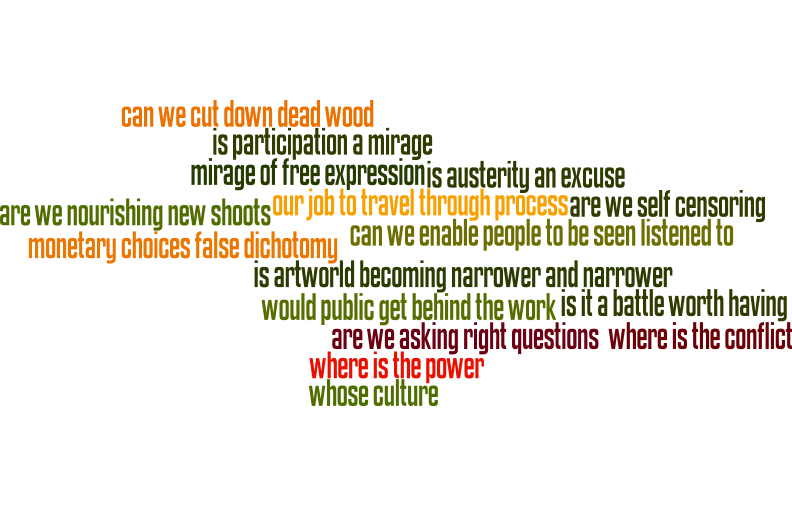
APRIL 2015. Samples from our Post-it challenge.
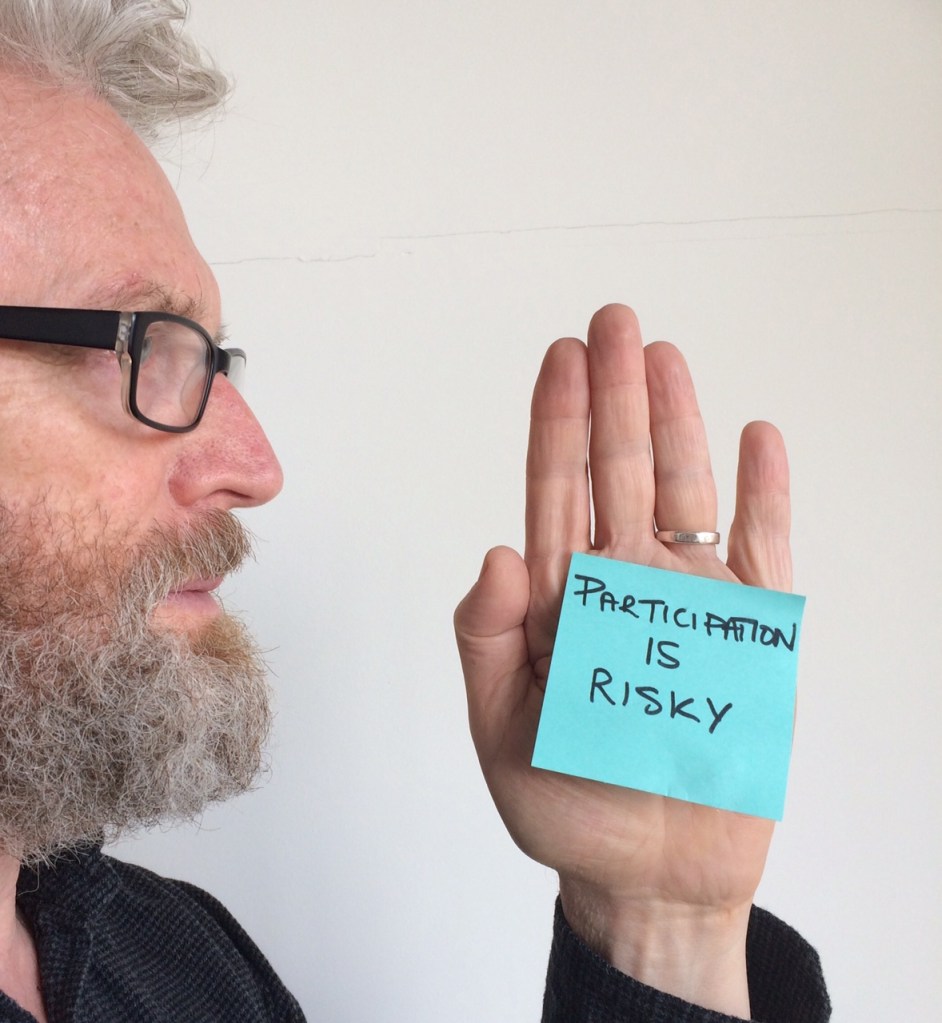

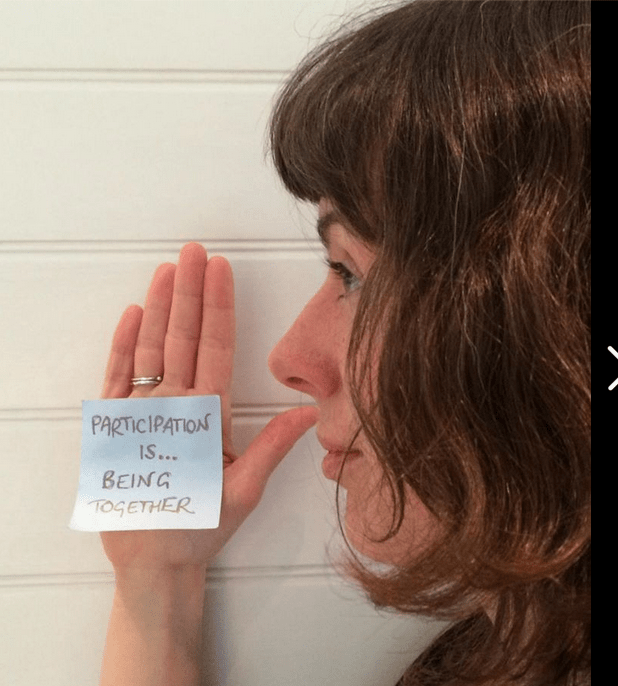


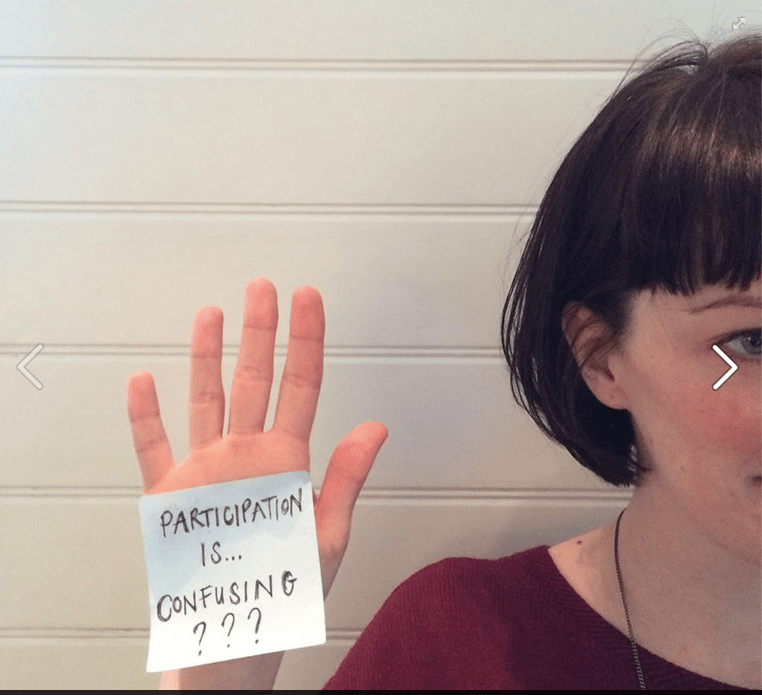


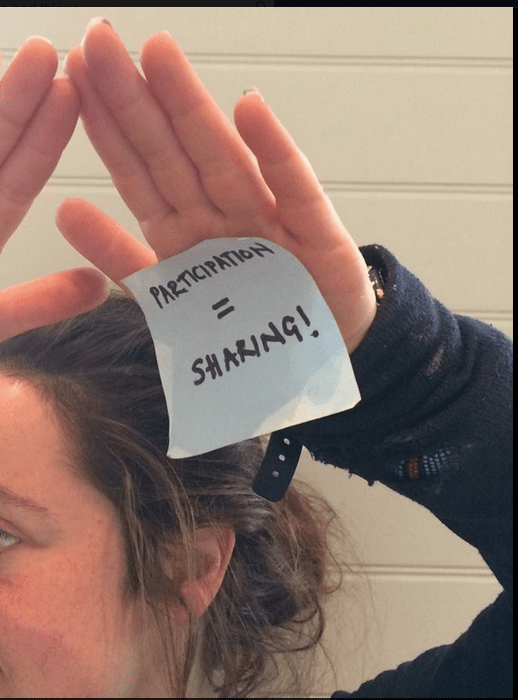
MAY 1st 2015. The Trial: The Invitation
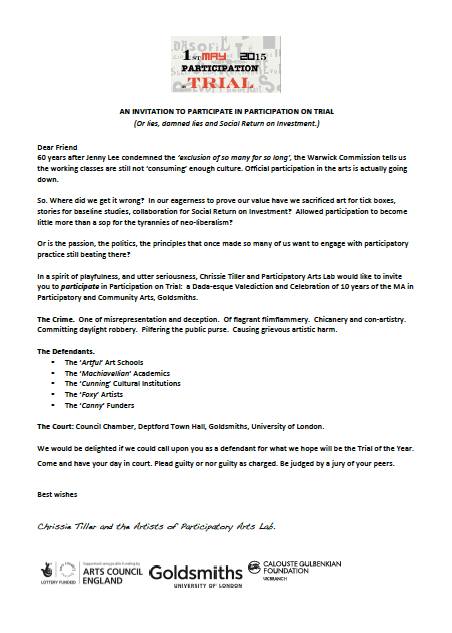
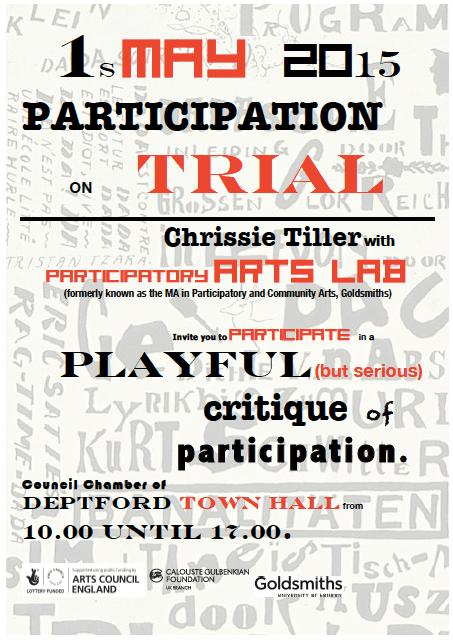
Setting the Space


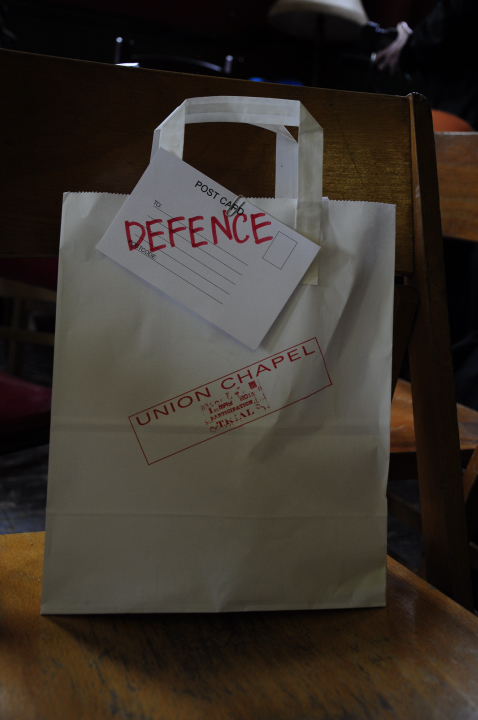
Our Defendants Prepare

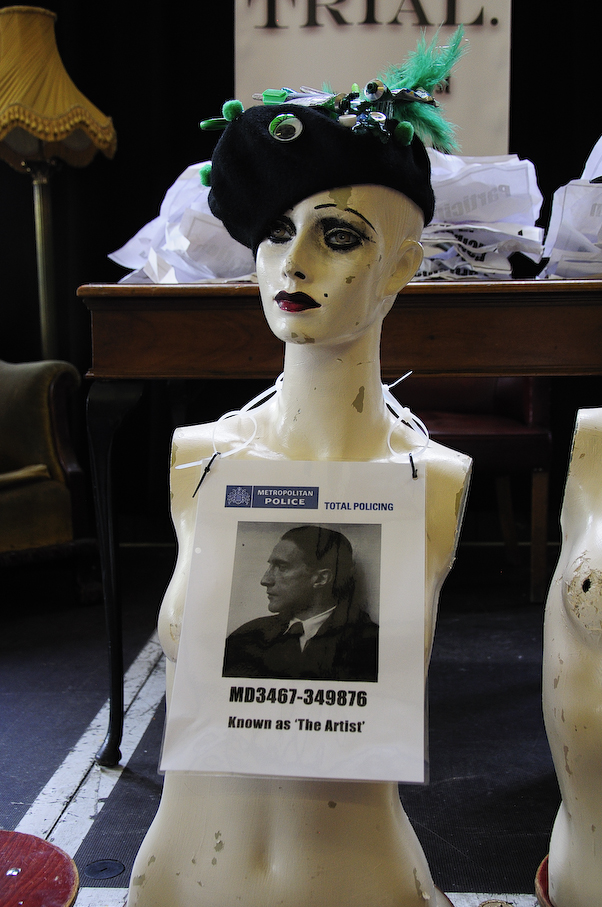
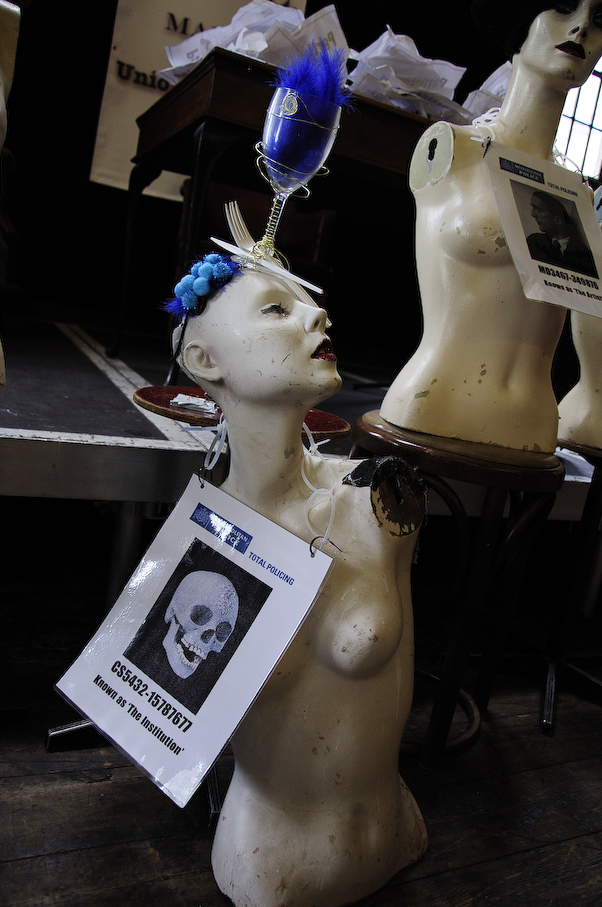

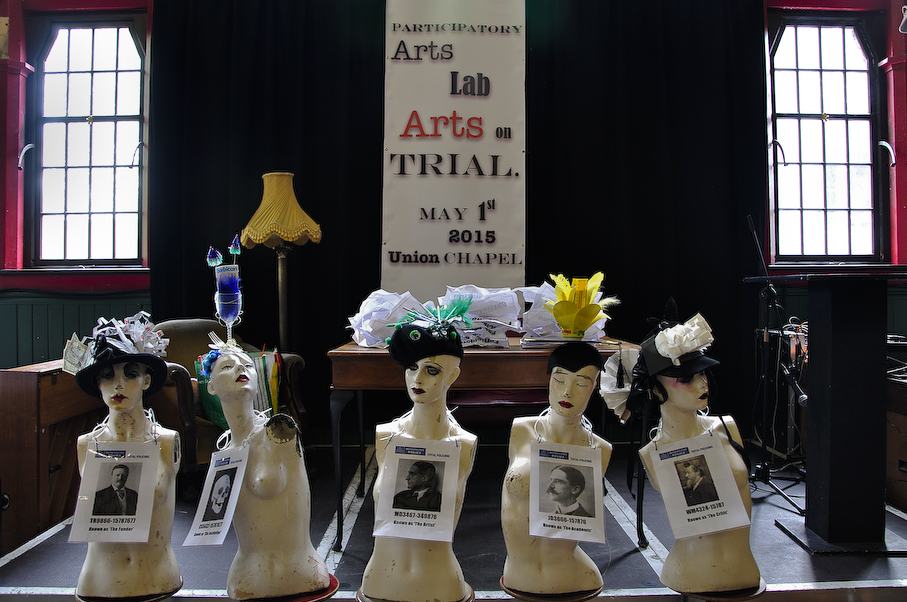
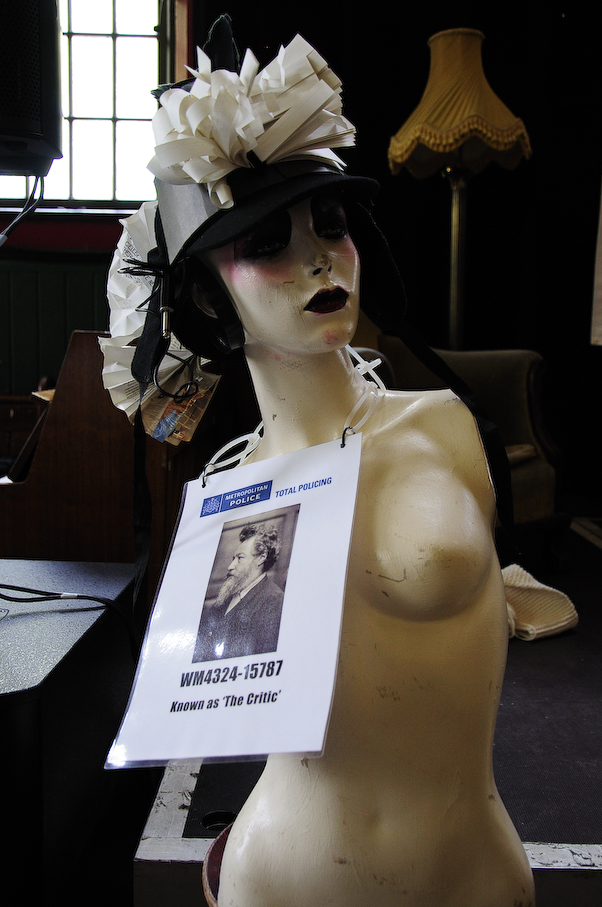
Prosecution and Defence
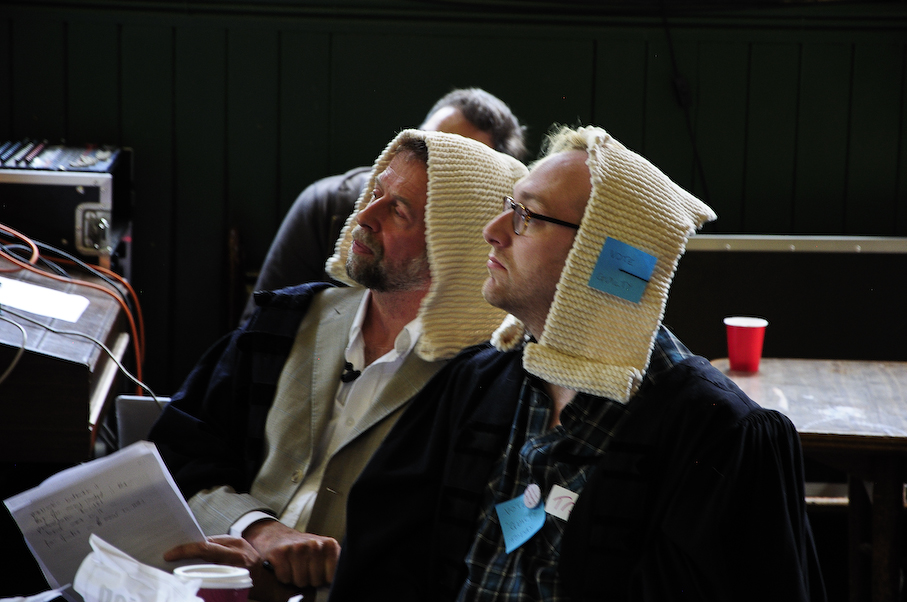

Witnesses Wait to be called
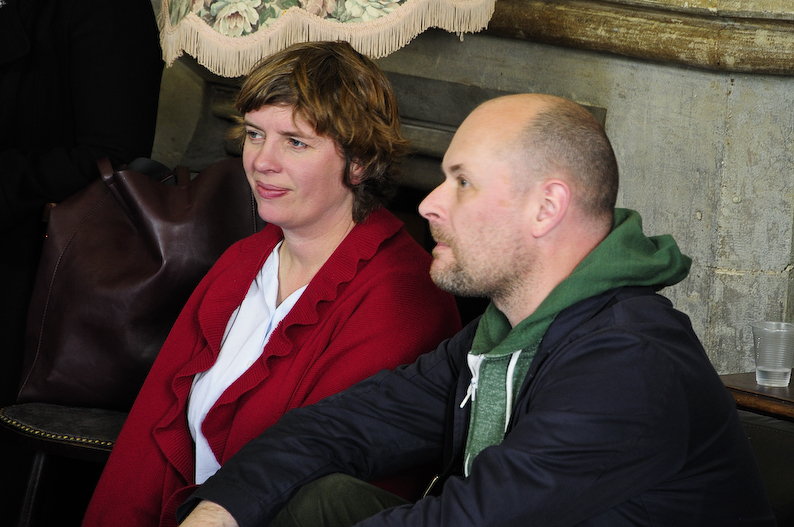

Speeches: For Defence:

Speeches: For the Prosecution:


https://davidaslater.wordpress.com/2015/05/04/an-act-of-treachery/
On the Soapbox

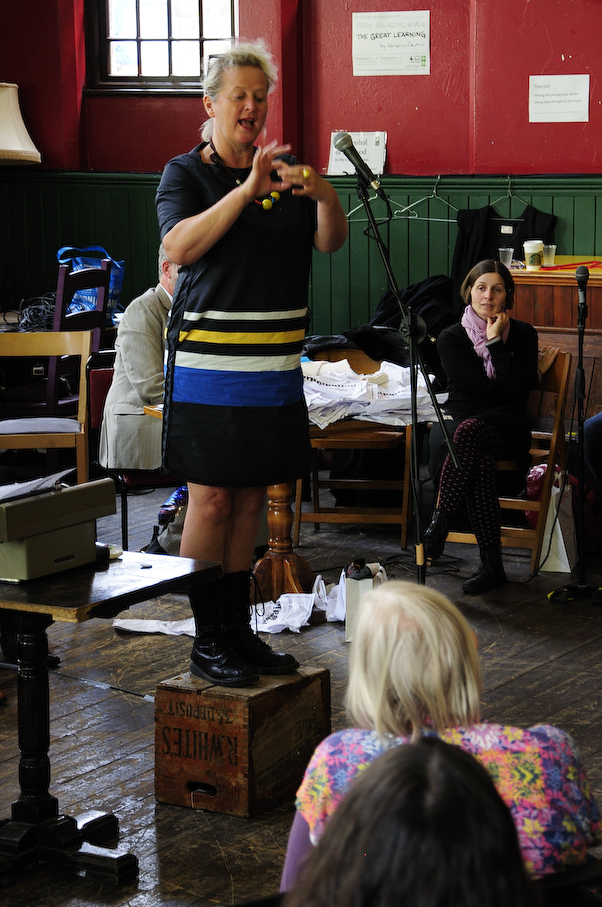
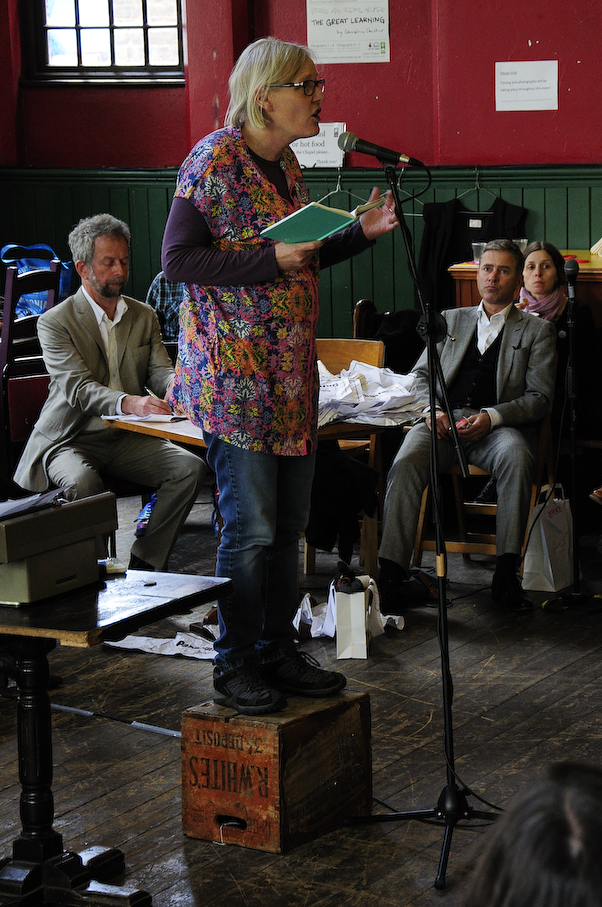

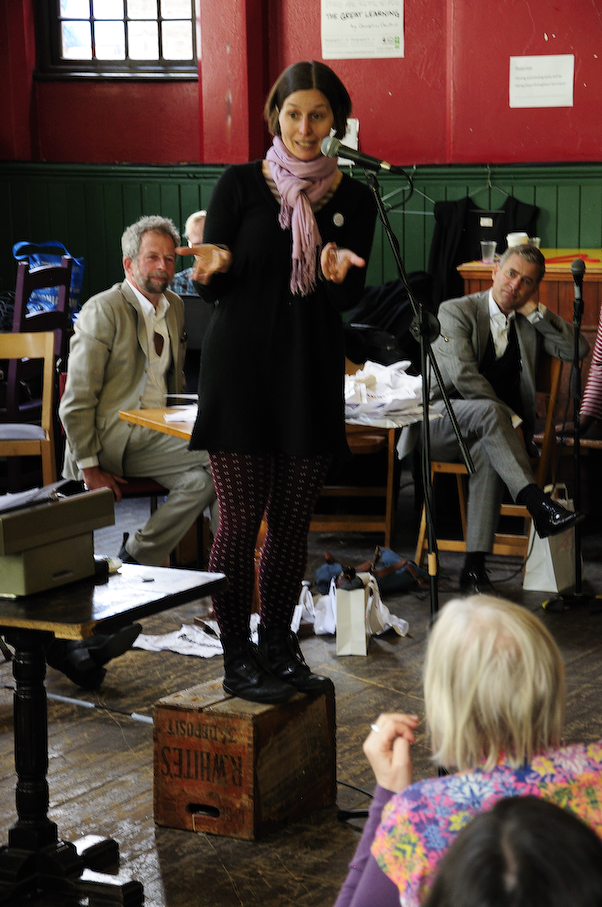


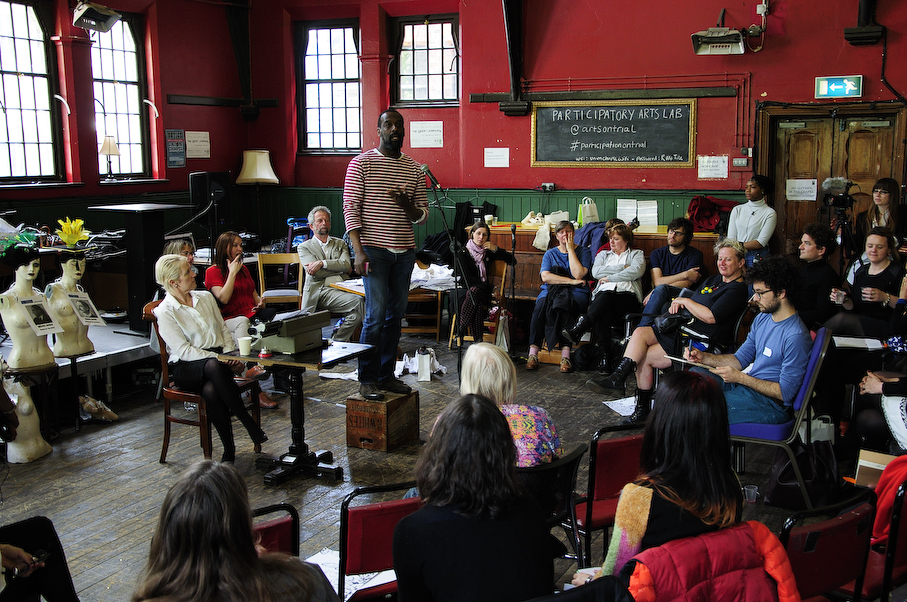
Opening the Space – as the Judge reflects
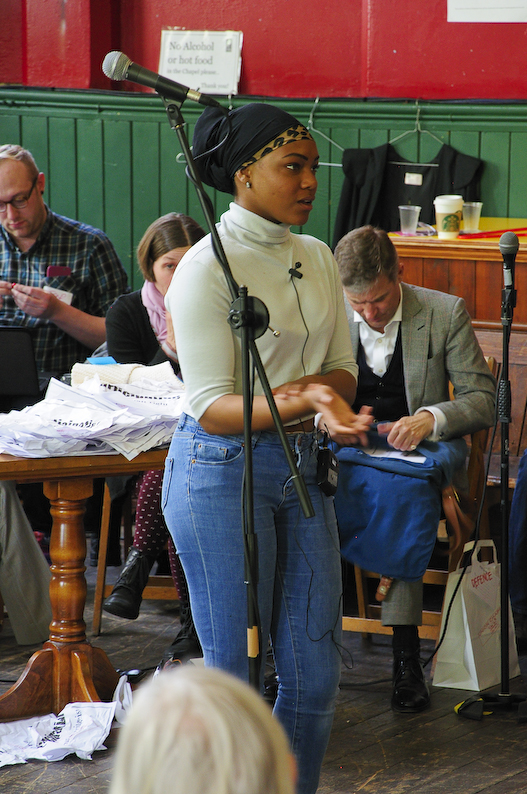
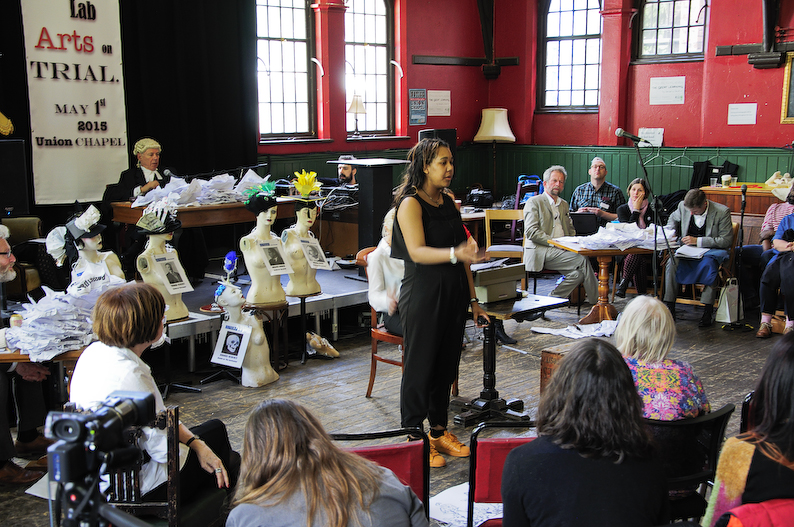
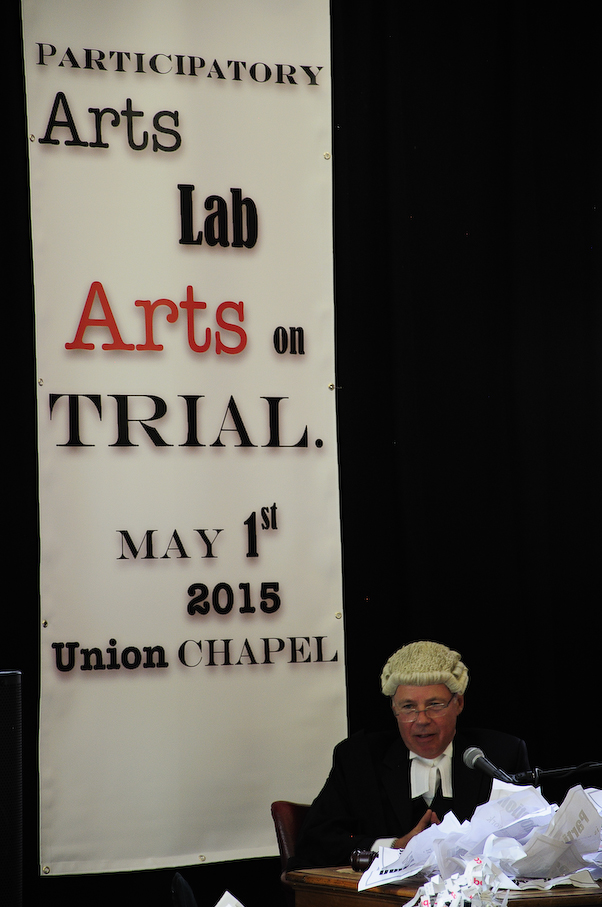
The Jury(ies) Reflect


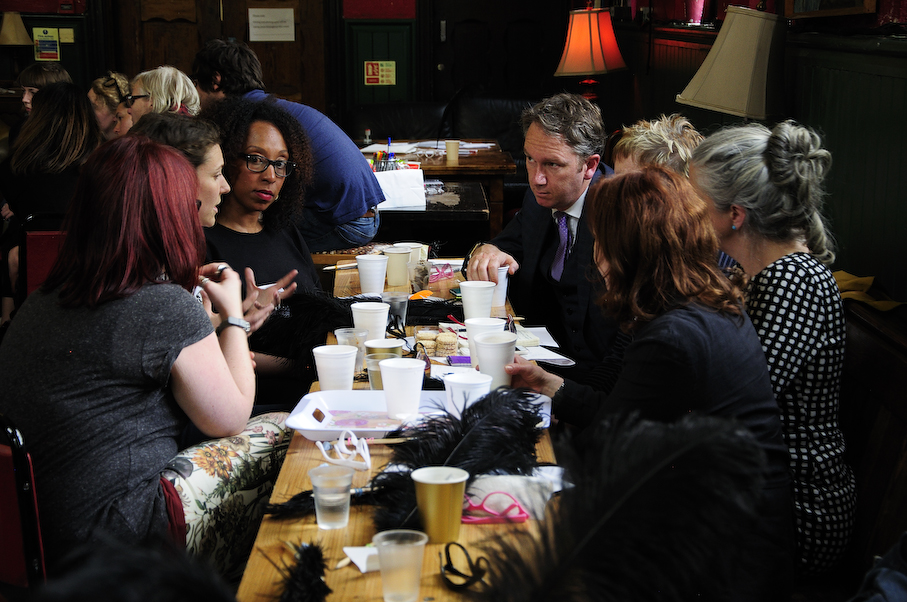
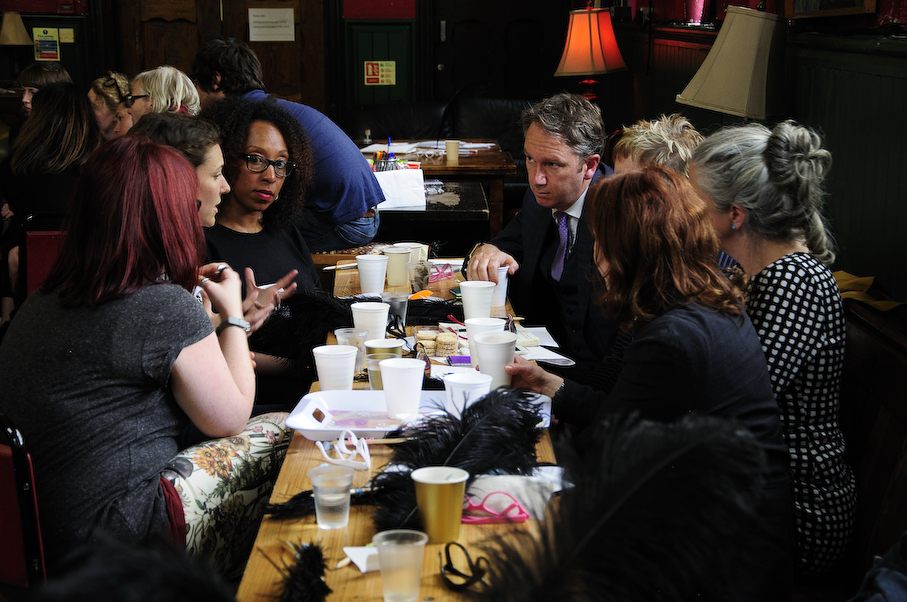

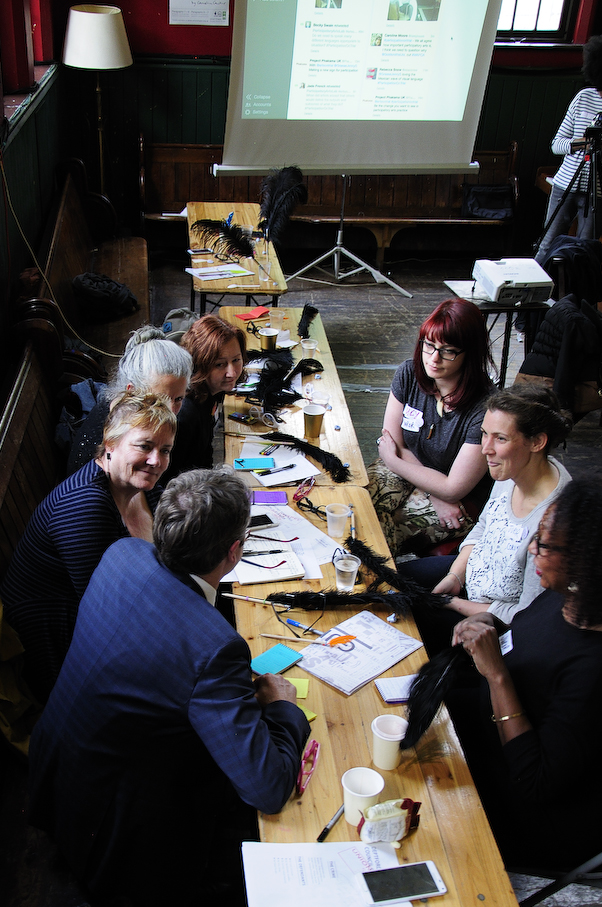
Guilty or Not Guilty: The Verdict




Sharing the Thinking



Our Three Court Artists


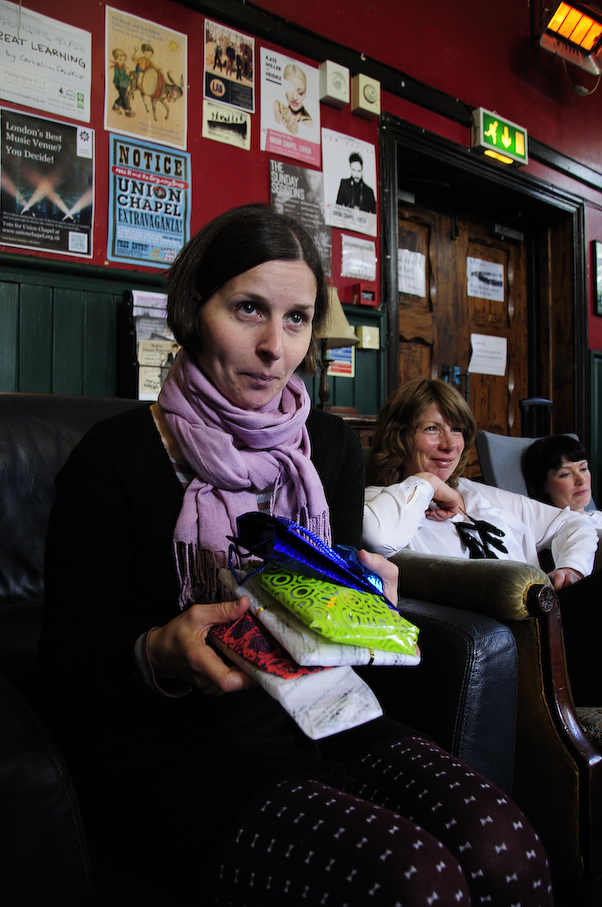
And some of the Art



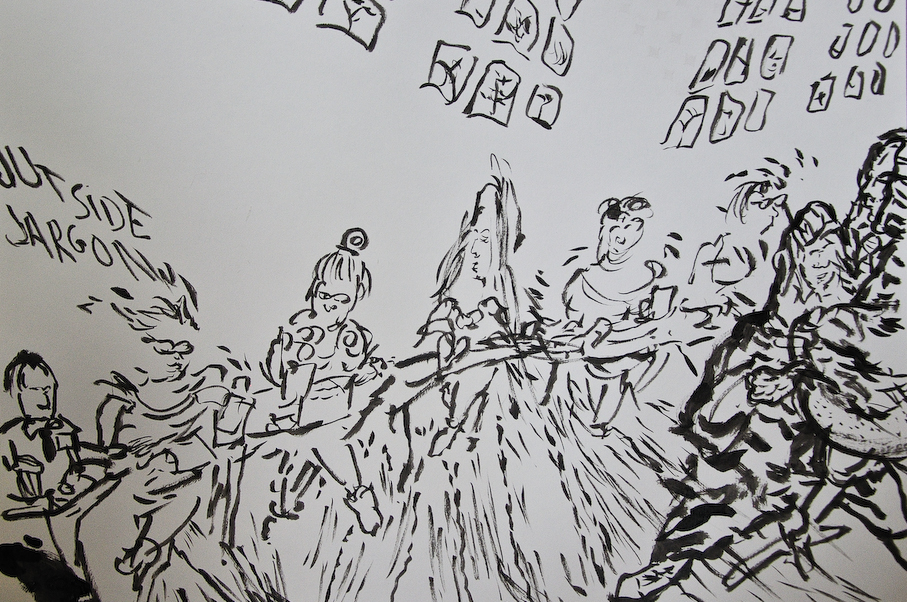

Evaluating as We Go





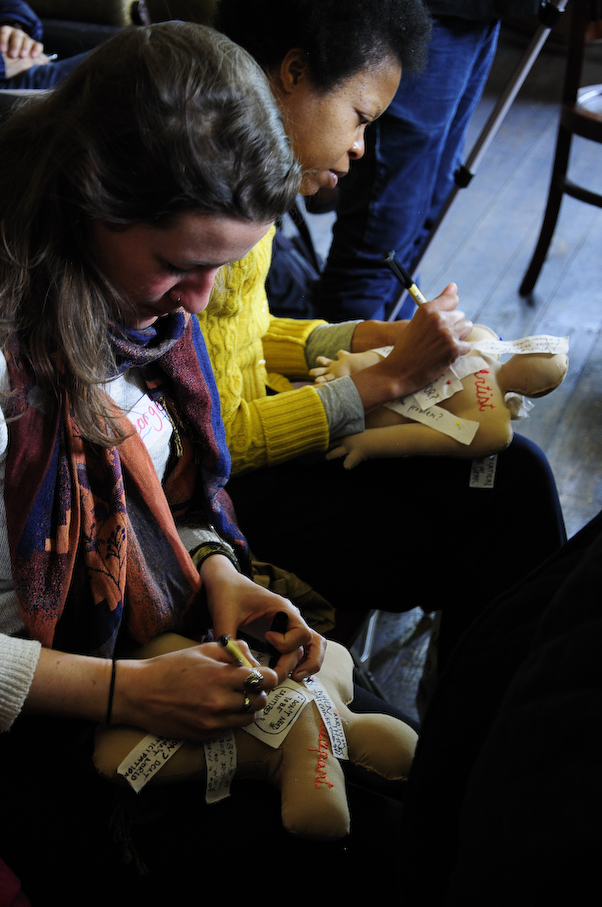

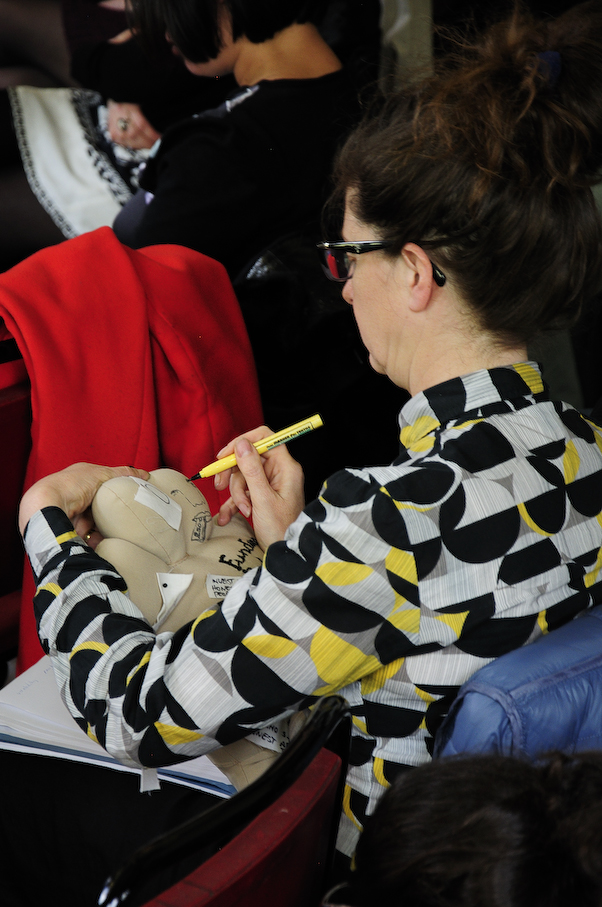

The Choir of Complaint

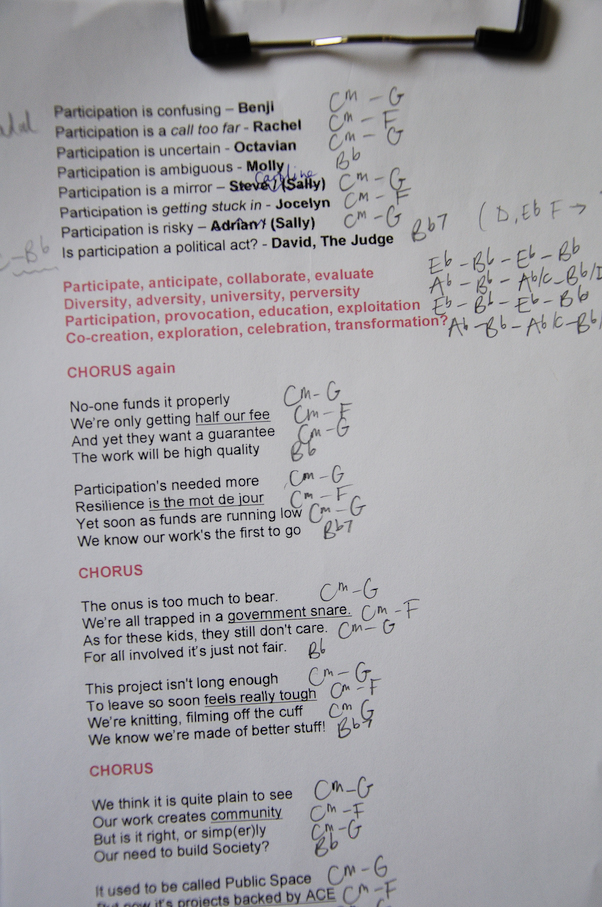

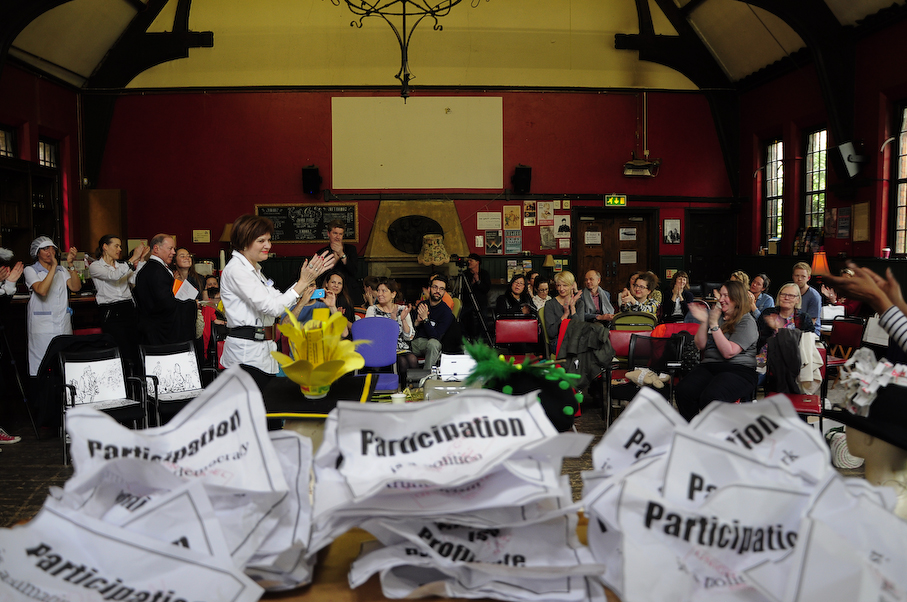
EVALUATION/SUMMARY
Sophie Hope’s Defence Notes.
Today I am wearing my academic hat as a witness to defend the role of academia from the accusation that we are misrepresenting participation in the arts.
- What is academia? For me it is a place for critical thinking. Breathing space. A site for learning and unlearning, for testing out ideas with others. For research and enquiry, for questioning assumptions and digging deeper into concepts through theory and practice in a supportive, safe environment.
- Academia is a chance to step back and rethink ideas such as participation in the arts, not represent or advocate for them. It is not, I argue, a space to demonstrate how amazing the arts are, or how participation is defacto a good thing.
- I base my witness statement on my own experience of higher education – In my practice-based PhD I explored notions of cultural democracy in relation to the commissioning of art to effect social change. This decision to frame my practice through the PhD came at a time when I was becoming increasingly disillusioned with my work as a paid external evaluator of publicly funded socially engaged art projects. In this context, I felt the possibility to be critical was limited, sometimes censored and essentially a marketing exercise for the project I was evaluating. I wanted to find a place for deep, critical reflection and analysis which wasn’t co-opted as advocacy – I found that place in academia.
- Since finishing my PhD in 2010 I have developed practice based research with one foot in academia and one foot out-with the university, developing ideas and practice around the emotional labour of socially engaged art, an ethical toolkit for credited work placements, physical relationships to immaterial work through my project with Jenny Richards – Manual Labours, and histories of community art and cultural policy, for example through my 1984 Dinners project which brings together people who were active artistically and politically in the year 1984. If I have received external funding for a project, it has been redistributed to pay people for their time.
- My experience of academia has also been through teaching – for example, one of the classes I teach is called Understanding Audiences for final year BA Dance and Arts Management students in which we read and discuss texts to explore questions of participation, such as Ben Warmsley’s critique of co-creation, Sherry Arnstein’s Ladder of Participation, Bernadette Lynch’s Whose Cake is it Anyway and Shannon Jackson’s Social Works. The course attempts to unpick our assumptions of participation in the arts rather than re-enforce them. We are constantly referring theoretical ideas to practice and exploring the relations between these. This is a space students rarely have in the pace of their working/family lives.
- In my own experience, academia can provide a space to explore different forms of pedagogy and research that stretch and challenge accepted methods – my activism and practice is embedded in my research and teaching, for example. I try to take a feminist, critical approach to teaching and researching, bringing real world problems and struggles into the classroom rather than treating it as a bubble. The boundaries are fluid as we bring our experience into the classroom and our research, rather than assuming an objective, ivory-tower position from which to preach.
- Unfortunately, our universities are changing. I work at Birkbeck where the students are still mainly working in the day and studying in the evening. It has its roots in working class education and yet with the debt of education being passed from the state to the individual, participation in arts and humanities education is becoming more and more difficult for those who do not have the financial means or willingness to risk that debt.
- So what does it mean to defend higher education institutions today? Personally I am not ready to jump ship – I still believe in the notion of education as a public good, that we should share the burden of that cost rather than financially penalise those who choose to enter into further study. The fight to defend academia as a space from which to challenge dominant assumptions is more important today than ever before.